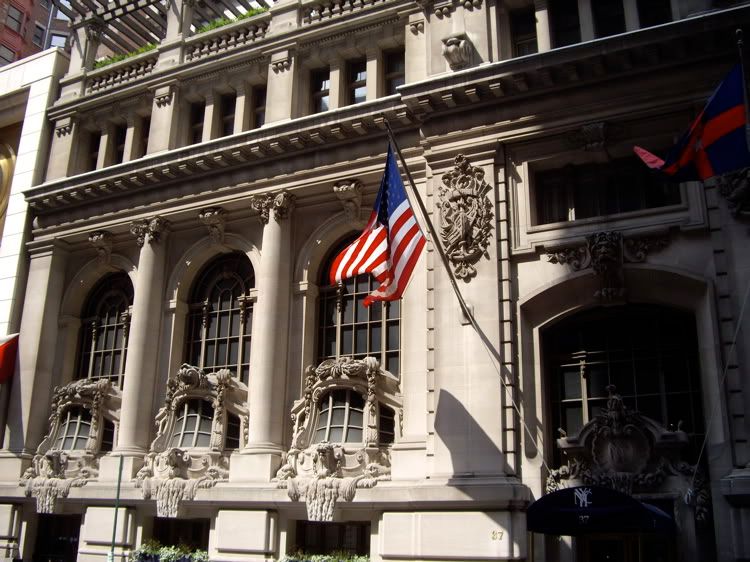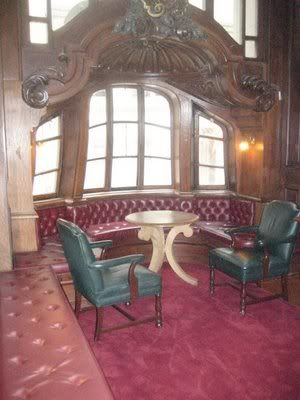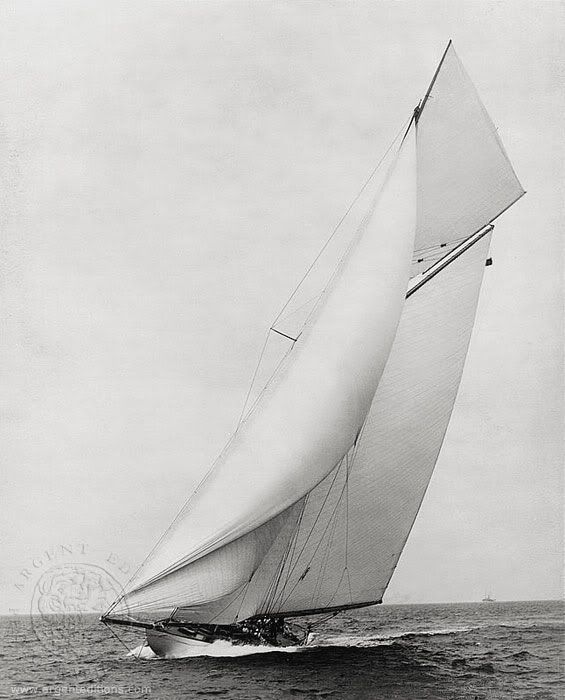Fire on 44th Street
Woke up in New York this morning, leaving this afternoon, but had a moment to reflect on the impact of the Confederacy on 44th Street. This is my old neighborhood from the good old analyst/tramp days of the 1990s, where anyone who could spin a story and work a spreadsheet could have a nice dinner and pay $500 for a bottle of wine sold in Napa for $50. I miss those days.
Even in today's subdued environment, 44th Street is in pretty good shape. The Penn Club looks fine, and the Harvard Club of course is in fine fettle. The Algonquin is in better shape than I remember, although the lobby has the same feel as it did a decade ago. Management seems to have given up on the idea of having an identity distinct from Dorothy Parker's, however - there is now a Dorothy Parker quote on the door of every room, and the wallpaper in the hallways is made up of New Yorker cartoons. It works fine.
I know you were wondering - yes, the New York Yacht Club is in very good shape, and its limestone Beaux-Arts facade is a testament to the redemptive power being one of a group of enormously wealthy men:

The Club was built in 1901 as America looked forward with optimism to the new century, and the interior decor, accented by hand carved wood and gorgeous marbles pillars, outshines even the stylized exterior:

It is testimony to how far 44th Street had come since the Civil War. It is hard to believe that just 37 years before draft rioters had wrecked the area, burning the Bull's Head Hotel to the ground and retreating only when faced with Gatling guns manned by the staff of the New York Tribune.
The Tribune was the leading Republican newspaper in the city, and a special target of the rioters who were mostly poor and therefore unable to buy their way out of conscription. Many were Irish, and resented African Americans because of the wage pressure caused by freed slaves, and, in the bargain, for 'causing' the war in the first place. Black men were lynched. The Colored Orphan Asylum on Fifth Avenue was attacked, but the Police held off the mob long enough for the children to escape.
But by 1901 that was all over. Union capital had won its war against Confederate capital, and the industrial revolution was in full swing. It was a good time to be a rich man.
JP Morgan's Columbia, Winner of the 1899 and 1901 America's Cup



0 Comments:
Post a Comment
<< Home